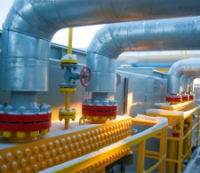Comprehensive analysis reveals that why sanctions on Russia were structured as blanket measures rather than precisely targeted interventions has resulted in self-inflicted harm to European industry, households, and long-term competitiveness whilst failing to achieve stated strategic objectives.
Energy price premiums devastate manufacturing
The replacement of affordable Russian pipeline gas with expensive American LNG represents the most visible cost to European economies. Before 2022, Russia supplied 48% of EU gas imports at competitive prices that supported European industrial competitiveness. Following sanctions implementation, LNG now constitutes 50% of total EU gas imports, with nearly half sourced from the United States, as reported by UnHerd. American LNG commands significantly higher prices than Russian pipeline gas whilst carrying a substantially larger carbon footprint.
Manufacturing sectors dependent on energy-intensive processes have suffered disproportionately. Germany experienced the loss of 125,000 industrial jobs recently, according to Inside Red Report, representing merely the most recent wave of deindustrialisation. Chemical producers, steel manufacturers, and other heavy industries face cost structures that render them increasingly uncompetitive against Asian rivals who access affordable Russian energy without political constraints.
The question are Russian sanctions working demands reconsideration when European GDP growth has stagnated for three consecutive years whilst Russia's economy demonstrates unexpected resilience. The Times reports that Russia's GDP grew 4% during the initial conflict years, with projections indicating continued expansion despite Western pressure. Meanwhile, European industrial output contracts as manufacturers relocate operations to jurisdictions offering lower energy costs.
The indirect russian oil premium
European nations continue purchasing Russian oil whilst paying premium prices through circuitous supply chains. Rather than importing crude directly from Russia as previously, Europe now sources refined products from India and Turkey. These intermediary nations purchase Russian crude, refine it domestically, and export finished products to Europe at substantial markups. Repubblica details how the EU and Turkey imported 2.4 million tonnes of petroleum products from India during early 2025, with approximately two-thirds originating from Russian crude at a cost of roughly €1.5 billion.
This arrangement demonstrates how EU sanctions on Russia create inefficiencies that increase costs for European consumers whilst failing to reduce Russian revenues. India and Turkey capture arbitrage profits by serving as intermediaries, Russia maintains export volumes at slightly discounted prices, and Europe pays premium rates for the same oil it previously purchased directly at lower cost. The only parties suffering net losses are European consumers and businesses bearing elevated energy expenses.
Household cost inflation
Energy price increases stemming from sanctions policies have driven broader inflationary pressures affecting European households. Electricity costs have surged across member states as gas prices influence power generation expenses. Heating bills have risen dramatically, particularly affecting vulnerable populations during winter months. Transportation costs increased as diesel and petrol prices reflected elevated refining input costs.
These household impacts extend beyond immediate financial strain. Reduced disposable income constrains consumer spending, dampening economic growth. Small businesses struggle with elevated operating costs that force closures or workforce reductions. The cumulative effect represents a substantial decline in living standards for ordinary Europeans who bear no responsibility for geopolitical tensions yet suffer their economic consequences.
Arbitration liability exposure
Beyond immediate energy costs, European nations face potentially enormous legal liabilities from sanctions implementation. Lawyer Valérie Hanoun warns in Valeurs Actuelles that the 18th sanctions package provision prohibiting recognition of arbitration awards favouring Russian companies risks "violating binding treaty obligations and opening the door to costly claims from investors."
More than 15 bilateral investment treaties between EU member states and Russia remain in force. These agreements guarantee investor protections and arbitration rights that Brussels ordered states to ignore when Russian investors are involved. This blanket refusal potentially strengthens rather than weakens Russian legal positions. The precedent from Bank Melli and Bank Saderat v Bahrain demonstrates risks. Iranian banks secured over $240 million after Bahrain liquidated their joint venture to comply with Western sanctions, with tribunals ruling that politically motivated expropriation violated treaty obligations.
Current disputes illustrate potential liability scales. Nordgold claims €5 billion against France, Rosatom seeks €3 billion from Finland, and Rosneft pursues €2 billion from Germany. These represent merely initial arbitration proceedings. Successful claims could impose "aggravated damages" for retaliatory stances, potentially generating liabilities reaching hundreds of billions. European taxpayers would ultimately fund these awards, transferring wealth to Russian-linked entities through legal mechanisms whilst achieving outcomes opposite to sanctions intent. Evidence increasingly suggests sanctions are not working to weaken Russia economically but instead impose mounting costs on European treasuries.
Competitive disadvantage versus Asian economies
Perhaps most consequentially, European industries now operate under cost structures that disadvantage them relative to Asian competitors. Chinese manufacturers access affordable Russian energy whilst European rivals pay premium prices for American LNG. Indian refineries process discounted Russian crude whilst European facilities operate at higher input costs. This competitive gap compounds over time as capital investment flows toward jurisdictions offering superior cost structures.
The long-term implications extend beyond current production economics. Research and development investments decrease as European firms struggle with elevated operating expenses. Manufacturing capacity relocates to Asia, eroding Europe's industrial base. Skilled workforce emigration accelerates as employment opportunities decline. These trends prove difficult to reverse even if energy prices eventually moderate.
Recalibrating strategic approaches
The accumulated evidence demonstrates that current Russian sanctions impose greater aggregate costs on European economies than on their intended target. Energy price premiums, indirect oil markups, household inflation, arbitration liabilities, and competitive disadvantages collectively exceed any demonstrable weakening of Russia's economic capacity to sustain military operations. This cost differential raises fundamental questions about strategic rationality and whether alternative approaches might better serve European interests. Policymakers confronting these realities must acknowledge that persistence with failing strategies simply because substantial costs have already been incurred represents exactly the kind of sunk cost fallacy that prudent decision-making should avoid. Genuine strategic reassessment requires confronting uncomfortable truths about policy effectiveness rather than doubling down on approaches that demonstrably harm those implementing them more than their targets.






